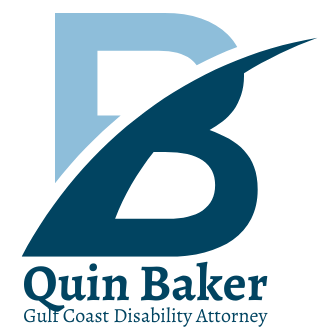Medical Records Needed When Applying for SSD Benefits
Navigating the maze of SSD benefits is stressful, time-consuming, and often fruitless. Your medical records are a key part of tapping into the benefits you are entitled to, but if you don’t know which medical records you need, you could be left submitting random documents until you find the right combination. That’s one of the reasons to reach out to the team at Quin Baker, SSD Lawyer. We know what it takes to get your SSD benefits in Pensacola, and we’ll help you with your application or appeal. Call us at 850-433-0888 to set up a consultation now.
The Importance of Medical Records
Medical records play a pivotal role in getting an SSD application approved. When the SSA looks at an SSD application, they begin with the assumption that the applicant is not disabled. Through your medical records, your job is to prove that you are disabled and that your disability is significant enough to keep you from working.
Adjudicators lean heavily on your documentation to get a full and accurate picture of your disability. Thorough medical records should prove your disability, the extent of the disability, and the myriad ways the disability affects your life. If your records are incomplete, from a specialist that has nothing to do with your disability, out-of-date, or otherwise unreliable, your application may be denied.
Essential Medical Documents
Medical records vary quite a bit, so the specific documents you’ll need will depend on the type of disability you have and what type of treatments you’ve gone through. However, you’ll likely want to go over everything you’ve ever undergone for your disability. This will include diagnostic tests, including those that were used to rule out other diagnoses. You should also submit documentation of lab results used to prove your diagnosis or rule out other health issues.
Your treatment plans and results will play a big role in your SSD decision, as the SSD is unlikely to approve a claim for someone who has not tried all of the approved treatment methods for their disability. For that reason, you should provide documentation of treatments you have tried and that have failed. If your health has worsened gradually since your disability, don’t forget to provide proof of that in your documentation. In addition to all of this documentation, you can provide notes directly from your care providers.
Supporting Documentation
Supporting documentation is not enough to prove your disability on its own. However, it can build on what you have already proven in your medical records. You may want to supply work-related documentation showing how your disability has affected your career. An official job description can be useful, especially if it includes elements of your job that you can no longer do as a result of your disability. You may also want to send in employment records showing how many days you have missed, how many days you had to leave early, and times that you were unable to perform a required element of your job.
Completeness and Accuracy
Perhaps the most important thing to remember as you build your SSD case is that you want to be both complete and accurate in your documentation. The adjudicator assigned to your file knows nothing of your disability, your work history, or your struggles. This is your chance to show exactly what your life is like and what your disability means for your career. Leaving out important information or accidentally including inaccurate information could significantly weaken your application.
This is one reason we recommend working with a disability attorney in Pensacola. SSD attorneys have been through this process enough times to know what the adjudicator is looking for and what can strengthen your application. This takes a lot of guesswork out of the entire application process.
Choose Quin Baker, SSD Lawyer for Help with Your Claim
Having an experienced and compassionate SSD attorney on your side can make this entire process as stress-free as possible. We’re committed to helping applicants like you get the disability benefits they are entitled to. Find out how we can help you now—call us at 850-433-0888 now or send us a message online.





Leave a Reply
Want to join the discussion?Feel free to contribute!